Our Affiliates
SUNY Downstate University Hospital at Downstate (UHD)
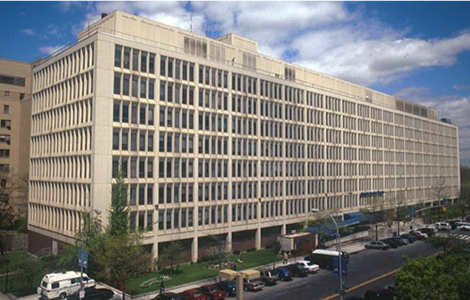
Older than the Brooklyn Bridge, SUNY Downstate HSU has roots that date back to 1860, when a School of Medicine was founded at the Long Island College Hospital. Now settled in the heart of East Flatbush, it is the only academic medical center in Brooklyn. The medical center serves a population over 2.3 million people, among one of the most diverse in the world. Your urologic surgery experience at SUNY Downstate Health Sciences University will expose you to pathology unlike many other institutions. The diversity of the underserved patient population exposes the young physician to unique situations from preventative medicine to significantly advanced clinical disease states. It is no wonder that more physicians who practice medicine in New York City received their training at our College of Medicine than any other medical center in the country.
A urologic surgery resident’s opportunity will encompass all aspects of general, oncologic, female, medical, and surgical urology. Operative experience include open, endourologic, and robotic assisted laparoscopic approaches. The SUNY Downstate Health Sciences University provides experience to the urologic surgery resident during their PGY-1, PGY-2, PGY-4, and PGY-5 years.
Faculty:
Llewellyn M. Hyacinthe, MD, MBA, FACS
Brian K. McNeil, MD, MBA, FACS
Avidah Rudberg, MD, FACS
Igor Ryndin, MD
Kings County Hospital Center (KCHC)
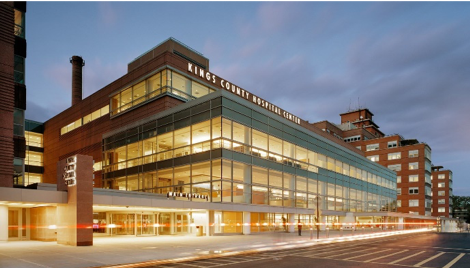
Kings County Hospital Center (KCHC) Kings County Hospital Center has a rich legacy dating back more than 175 years. The original hospital was completed in 1837, which marked the beginning of one the largest municipal hospital in the United States. Known for its pioneering role in medicine, Kings County Hospital has staked claim to many “firsts”: it was the site of the first open-heart surgery performed in New York State; Kings County physicians invented the world's first hemodialysis machine, conducted the first studies of HIV infection in women, developed the clinical application of diagnostic peritoneal lavage, and produced the first human images using magnetic resonance imaging (MRI). In addition, Kings County was named the first Level 1 Trauma Center in the United States, which currently serves 2.6 million residents of Brooklyn and Staten Island. In 2003 the United States Army created a training program at Kings County Hospital Center, which sees some of the highest rates of gunshot and stabbing victims, to train reservists in its unique emergency room.
The current hospital, which completed a 3 phase upgrade to a new building in 2006 includes 627 beds, cutting edge diagnostic equipment, and state-of-the-art treatment facilities. With the implementation of the EPIC EMR platform, Kings County Hospital Center is now electronically linked to the other 10 acute care hospitals and more than 70 clinical locations throughout the 5 boroughs of NYC. KCHC is the flagship hospital of the largest public healthcare system in the United States. KCHC continues to provide the most significant clinical experiences for our residents. The Urologic Surgery Resident will gain experience in high volume Genitourinary Trauma, Open and Robotic Uro-Oncology, Reconstructive Surgery, and Advanced Endoscopic Stone Management. KCHC provides experience to the urologic surgery resident during their PGY-1, PGY-2, PGY3 and PGY-5 years.
Faculty:
Abdo (Eddie) Kabarriti, MD
John M. Shields, MD
Andrew G. Winer, MD, FACS
The Brooklyn Hospital Center (TBHC)
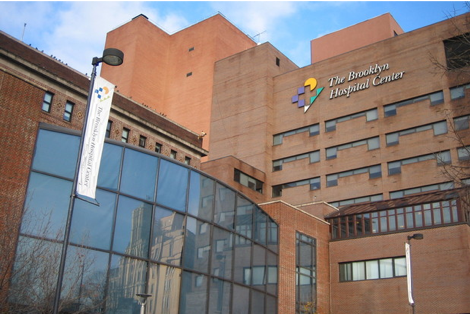 The Brooklyn Hospital Center dates back to the 1840s, and claims its position in history
as Brooklyn’s first voluntary hospital. Located in Fort Greene, Brooklyn the hospital
cares for a dense population in the surrounding neighborhoods. The established urologic
practice sees a wide spectrum of urologic pathology. Preventative care and definitive
treatments are provided utilizing latest advancements in medical technology. The urologic
surgery resident is integral in the delivery of care in the clinical environment,
and is enormously involved in open, laparoscopic, robotic assisted laparoscopic, and
endourologic surgical approaches. The recent addition of three high volume surgeons
to an already world class staff offers the rotating resident exposure to advanced
robotics and the newest laser technology. The Brooklyn Hospital Center provides experience
to the urologic surgery resident during their PGY-2 and PGY-5 years.
The Brooklyn Hospital Center dates back to the 1840s, and claims its position in history
as Brooklyn’s first voluntary hospital. Located in Fort Greene, Brooklyn the hospital
cares for a dense population in the surrounding neighborhoods. The established urologic
practice sees a wide spectrum of urologic pathology. Preventative care and definitive
treatments are provided utilizing latest advancements in medical technology. The urologic
surgery resident is integral in the delivery of care in the clinical environment,
and is enormously involved in open, laparoscopic, robotic assisted laparoscopic, and
endourologic surgical approaches. The recent addition of three high volume surgeons
to an already world class staff offers the rotating resident exposure to advanced
robotics and the newest laser technology. The Brooklyn Hospital Center provides experience
to the urologic surgery resident during their PGY-2 and PGY-5 years.
Faculty:
Wellman Cheung, MD, FACS
Ivan Colon, MD
Dhanan Etwaru, MD
Alexander Lipyansky, MD
Brent Yanke, MD
Edward Zoltan, MD
The Veterans Affairs New York Harbor Healthcare System – Brooklyn Campus
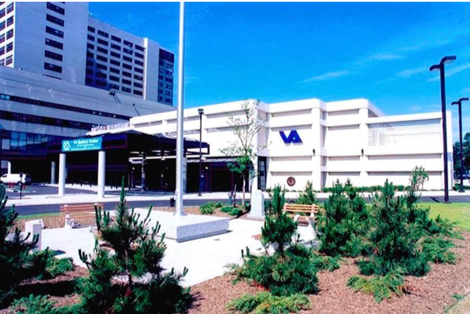 Dating back to the Civil War era, the VA Health System was developed from federal
hospitals and domiciliaries for the nation’s volunteer forces. Today, more than 60%
of all medical residents obtain a portion of their training at VA hospitals. The VA
Harbor Healthcare System: Brooklyn Campus provides the young urologic surgeon-in-training
with a procedure focused experience in clinical and operative environments. The resident
has the privilege of treating men and women who have sacrificed for the country in
active combat. Under the tutelage of fellowship-trained urologic surgeons, the resident
gains a full breadth of the scope of urology. It is here the resident works one-on-one
with the Chair of the program who is world renown for his research and advancement
in the understanding of voiding dysfunction, urodynamic studies, and nocturia. Additionally,
the resident will acquire distinct exposure to multidisciplinary Tumor Board conferences
that includes professionals in: Pathology, Medical Oncology, Radiation Oncology, and
Urologic Oncology. The VA New York Harbor Healthcare System: Brooklyn Campus provides
experience to the urologic surgery resident during their PGY-1, and PGY-2 years.
Dating back to the Civil War era, the VA Health System was developed from federal
hospitals and domiciliaries for the nation’s volunteer forces. Today, more than 60%
of all medical residents obtain a portion of their training at VA hospitals. The VA
Harbor Healthcare System: Brooklyn Campus provides the young urologic surgeon-in-training
with a procedure focused experience in clinical and operative environments. The resident
has the privilege of treating men and women who have sacrificed for the country in
active combat. Under the tutelage of fellowship-trained urologic surgeons, the resident
gains a full breadth of the scope of urology. It is here the resident works one-on-one
with the Chair of the program who is world renown for his research and advancement
in the understanding of voiding dysfunction, urodynamic studies, and nocturia. Additionally,
the resident will acquire distinct exposure to multidisciplinary Tumor Board conferences
that includes professionals in: Pathology, Medical Oncology, Radiation Oncology, and
Urologic Oncology. The VA New York Harbor Healthcare System: Brooklyn Campus provides
experience to the urologic surgery resident during their PGY-1, and PGY-2 years.
Faculty:
Nicholas Karanikolas, MD, FACS
Jeffrey P. Weiss, MD, PhD, FACS
Children’s Hospital of Philadelphia (CHOP)
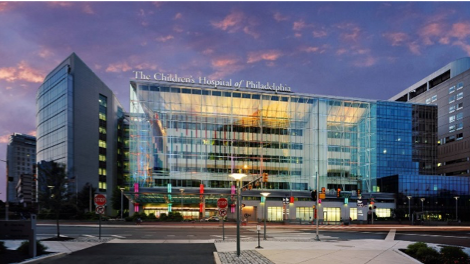 Perennially ranked as the nation’s top pediatric hospital, The Children’s Hospital
of Philadelphia has become an integral part of the SUNY Downstate Urology Residency
Program. Since 1855, the nation’s first hospital devoted exclusively to caring for
children, The Children’s Hospital of Philadelphia has led the way with dramatic “firsts”
in the development of innovations that have improved pediatric healthcare. Under the
instruction from thought leaders in the field of pediatric urology, the urologic surgery
resident gains exposure to unmatched clinical pathology. The urologic surgery resident
is provided housing by the program in University City on the Penn Campus in Philadelphia.
The Children’s Hospital of Philadelphia provides experience to the urologic surgery
resident during their PGY-4 year.
Perennially ranked as the nation’s top pediatric hospital, The Children’s Hospital
of Philadelphia has become an integral part of the SUNY Downstate Urology Residency
Program. Since 1855, the nation’s first hospital devoted exclusively to caring for
children, The Children’s Hospital of Philadelphia has led the way with dramatic “firsts”
in the development of innovations that have improved pediatric healthcare. Under the
instruction from thought leaders in the field of pediatric urology, the urologic surgery
resident gains exposure to unmatched clinical pathology. The urologic surgery resident
is provided housing by the program in University City on the Penn Campus in Philadelphia.
The Children’s Hospital of Philadelphia provides experience to the urologic surgery
resident during their PGY-4 year.
Memorial Sloan Kettering Cancer Center (MSKCC)
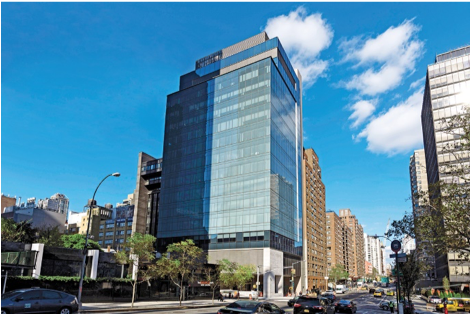 A world renowned private cancer center, Memorial Sloan Kettering Cancer Center, founded
in 1884, has devoted over 135 years to patient care, research, and education. Located
on York Ave, on the Upper East Side of Manhattan, MSKCC is ranked atop US News & World
Report for cancer center care. Expectedly, the institution treats pathology from not
only across the nation, but around the world.
A world renowned private cancer center, Memorial Sloan Kettering Cancer Center, founded
in 1884, has devoted over 135 years to patient care, research, and education. Located
on York Ave, on the Upper East Side of Manhattan, MSKCC is ranked atop US News & World
Report for cancer center care. Expectedly, the institution treats pathology from not
only across the nation, but around the world.
The urologic surgery resident is involved in an incomparable role at Memorial Sloan Kettering Cancer Center. By the end of their residency, the young physician will have completed 2/3rds of a clinical fellowship in Urologic Oncology. Eight clinical months are spent in direct patient contact in clinical and operative settings. As a chief resident, the urologic surgery resident serves as an acting fellow, and cares for a disease-specific urologic oncology service under the tutelage the specialty’s thought leaders. Additionally, the urologic surgery resident is oft involved in starting or advancing clinical research utilizing the resources and databases provided by an industry leader in academic medicine.
Memorial Sloan Kettering Cancer Center provides experience to the urologic surgery resident during their PGY-3 and PGY-5 years. Housing is program provided to the chief resident during their acting fellow rotation at Memorial Sloan Kettering Cancer Center.
Mount Sinai South Nassau Hospital
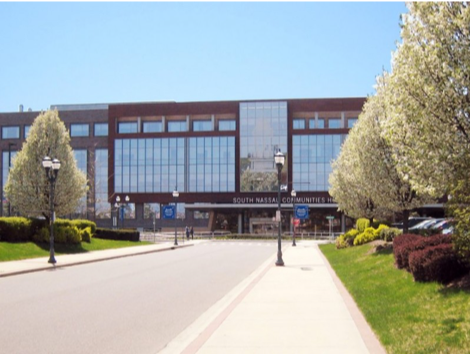
Mount Sinai-South Nassau Community Hospital -established in 1928, is one of the region's largest hospitals, with 435 beds, more than 900 physicians and 3,000 employees; SNCH has nearly 22,000 admissions per year. SNCH is Nassau County's only South Shore hospital offering 24-hour emergency angioplasty and is a Level II Trauma Center, with over 60,000 ER visits yearly. SNCH offers the Da Vinci Robot which serves a number of busy surgical services. Dr. Michael Herman helms the program in Urological Robotic Surgery at South Nassau.
Mount Sinai-South Nassau Communities Hospital provides experience to the urologic surgery resident during their PGY-4 year.
Faculty:
Michael Herman, MD
Coney Island Hospital
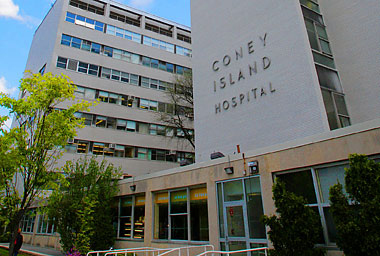 The Program’s ongoing assessment of our internal and external environment led to the
incorporation of Coney Island Hospital into our resident educational network starting
in July 2020. We believe that there is an opportunity to expand our resident’s experience
on endourology, reconstruction, and open surgery. A health care provider for South
Brooklyn since 1875, Coney Island is a 371-bed facility, and one of the NYC Health
and Hospital system’s 11 acute care hospitals that offers general and specialty care
to adults and children.
The Program’s ongoing assessment of our internal and external environment led to the
incorporation of Coney Island Hospital into our resident educational network starting
in July 2020. We believe that there is an opportunity to expand our resident’s experience
on endourology, reconstruction, and open surgery. A health care provider for South
Brooklyn since 1875, Coney Island is a 371-bed facility, and one of the NYC Health
and Hospital system’s 11 acute care hospitals that offers general and specialty care
to adults and children.
Faculty:
Abdo (Eddie) Kabarriti, MD